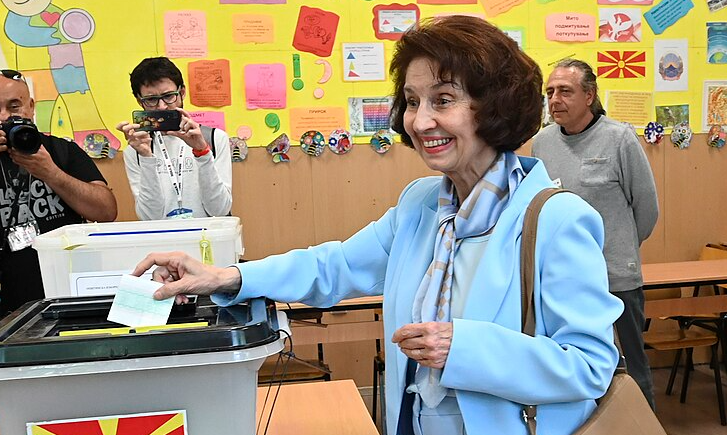New North Macedonian President’s naming gaffe rekindles old disputes, stoking tensions with Greece and EU scrutiny.
Others are reading now
The diplomatic atmosphere between North Macedonia and Greece has been recharged following a controversial decision by the new North Macedonian President, Gordana Siljanovska-Davkova, to omit “North” from the country’s official name during her swearing-in ceremony.
This move not only deviated from the agreed upon format but also reignited tensions over a name that has been a historical point of contention. This is reported by the Balkan version of Al Jazeera.
A Misstep During the Swearing-In Ceremony
During the pivotal moment of the oath-taking, where the outgoing President of the Assembly, Jovan Mitreski, was to be echoed, Siljanovska-Davkova referred to the country simply as “Macedonia.”
This act disregarded the official constitutional name, “North Macedonia,” which had been adopted under the 2018 Prespa Agreement with Greece.
Also read
The agreement was pivotal in settling longstanding disputes over the country’s name, facilitating its accession to NATO and advancing EU membership talks.
Greek Reaction
The Greek Ministry of Foreign Affairs did not mince words, describing the omission as a “flagrant violation” of both the Prespa Agreement and the North Macedonian Constitution.
In response, the Greek Ambassador to North Macedonia, Sofia Filipidu, exited the inauguration ceremony in protest, highlighting the gravity of the situation.
Echoing the sentiment, European leaders have voiced their concerns. Ursula von der Leyen, President of the European Commission, emphasized the importance of respecting the Prespa Agreement for North Macedonia’s continued path towards EU integration.
This sentiment was reinforced by the EU External Action Service (EEAS), expressing regret over the new president’s statement.
This incident could potentially rekindle old disputes not only with Greece but also with Bulgaria, which has its conditions for North Macedonia’s EU progression. With the nationalist VMRO-DMPNE party backing Siljanovska-Davkova, there’s a palpable risk of heightened tensions, threatening the delicate balance of peace and cooperation in the region.


